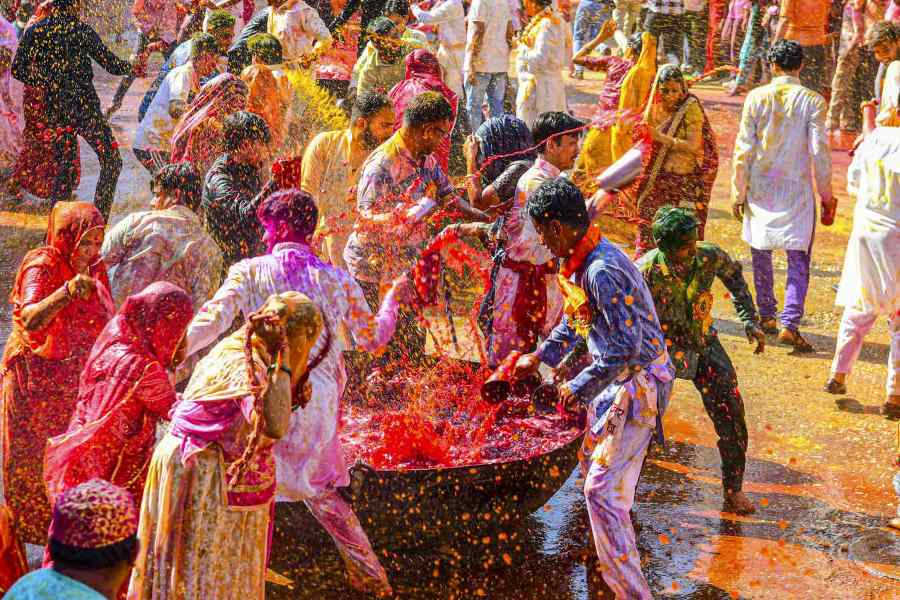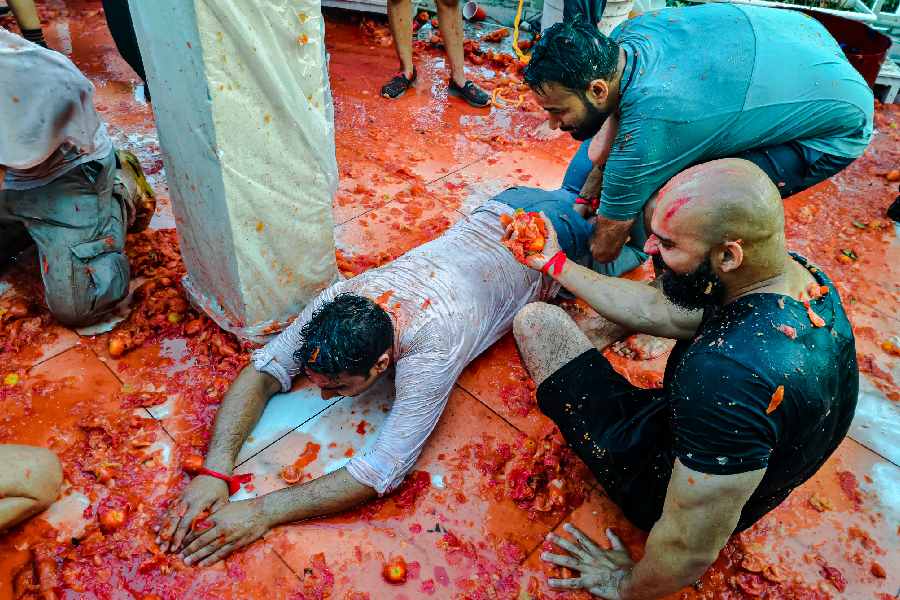 Thursday, 05 March 2026
Thursday, 05 March 2026
 Thursday, 05 March 2026
Thursday, 05 March 2026
Fauja Singh – who died at the age of 114 after a road accident – didn’t just have nerves of steel. He also had the audacity to start from scratch. Because at 89, when most people slow down, he laced up his shoes and ran towards finding a new purpose in life.
Singh – who was born on April 1, 1911 in Jalandhar – could not walk properly until he was five and was often dismissed as “physically weak”. He lost his wife and son in the early 1990s and eventually took to running to cope with the lingering grief. Slow and steady, the dots connected and his story turned into a treasured anecdote.
He wasn’t just known for the miles he dutifully covered. But also how he conducted himself when the spotlight was trained on him. Every penny he earned through global endorsements – including high-profile campaigns with Adidas and Nestlé – went straight to charity.
Not a rupee ever touched his own account and fame never got to his head.
His accomplishments are noteworthy.
Singh completed his first marathon in London in 2000. He went on to run nine full marathons in London, Toronto, New York and Mumbai, clocking his personal best of 5 hours 40 minutes and 4 seconds in the ‘over 90’ age category at the Toronto Waterfront Marathon in 2003. At 100, he became the first centenarian to finish a marathon, completing the 2011 Toronto Waterfront Marathon in just over eight hours.
‘Turbaned Tornado’
The moniker by which Fauja came to be known – ‘Turbaned Tornado’ – has a story of its own. Author and journalist Khushwant Singh, who penned Fauja’s 2011 biography, explained that the name wasn’t in popular use before the book.
“Wherever he went, it used to be like, Fauja Singh, Fauja Singh, Fauja Singh. So it was like a tornado hit, like the Fauja tornado,” Khushwant said. “It was a very apt title because he ran with a turban and obviously, the turban stood out, and so did his achievement.”
The biography, Turbaned Tornado, was released at the House of Lords and followed by a book tour. His fame, according to Singh, came solely from his own grit and efforts. “It was his own achievement that brought him fame.”
A grounded man
Despite being extraordinarily gifted, Fauja remained humble.
According to Khushwant, “He was a very simple man with very common sense, old world. He was like the old romanticised version of the Punjabi peasant that we know of. He was the true form of that. He was very, very sharp, very observant and very inquisitive.”
Fauja had a deep interest in agriculture. No matter where he went, even in places like Australia, he would visit farms, ask questions and learn. “He had the greatest sense of humour. His one-liners were absolutely... I used to call them faujiisms,” Khushwant said.
The science and soul of running
Running marathons past the age of 80 is no mean feat, and Fauja’s remarkable fitness came from both willpower and scientific training. His coach, Harmandar Singh, played a vital role in helping him train.
“Fauja Singh understood the importance of training and having a scientific approach to his lifestyle,” said Khushwant. “He was a frugal eater. He always believed that more people die of overeating than they die of eating less.”
His lifestyle remained simple. In East London, where he lived, he would be ready by 10:30am and then visit the local Gurdwaras, drink tea, meet people and walk around the area. “All my interviews with him are on the streets of London, East London. We never sat down,” said Khushwant.
Even at the Trident hotel in Mumbai during the 2013 marathon, he couldn't sit still. “His nephew called me and said that his uncle said, ‘Mujhe yaha hotel me bithae rakhne ke liye laaye ho? Bamba dekhna hai mujhe, Bamba’,” Khushwant recalled. Fauja used to refer to Mumbai as ‘Bamba’.
Guinness or not, the world knew
One lingering controversy around Fauja’s legacy was the Guinness World Records not recognising his feat as the world’s oldest marathon runner, citing the absence of a birth certificate. His birth year was listed on his passport as 1911, but that did not satisfy the record keepers.
“He didn’t have a birth certificate. He had his birth written on his passport. First, Guinness had acknowledged that and later they didn’t,” Khushwant said. “But the point is whether Guinness accepts or not, the world accepts him as the world’s oldest marathon runner.”
Khushwant added that Fauja himself was indifferent to such recognition. “He didn’t even know what record books meant. He didn’t even know what it was. He was just in love with running. He was an illiterate man. He didn’t even know which country he was going to. He would just sit on the plane. Someone would put him on the plane. Someone would take him. Someone would put him in their house.”
Khushwant fondly remembered a boarding pass from 2011 that read “oldest marathon runner.” “Who gets that privilege?” he asked.
Fame without fuss
Fauja’s fame never seemed to touch him personally. “He wouldn’t even know. He didn’t care. He was unfazed by it all. He was absolutely a simple man,” said Khushwant.
His unassuming charm made him a figure loved across the world. He carried the torch for the London 2012 Olympics, featured in international campaigns alongside Muhammad Ali and David Beckham and continued to inspire millions.
He also featured in Singh’s earlier work Six Unlimited, which came out in 2006 or 2007. But as Singh puts it, “He wouldn’t have been Fauja Singh if he had stayed in India. ‘Sarak pe pehle hi koi maar deta unko’.”
An energetic ‘Turbaned Tornado’
Even in his later years, the Turbaned Tornado remained energetic. He had no recovery secrets after marathons, only basic massages and rest. Hydration was his only ritual.
Asked if he ever feared death, Singh remembered a conversation from 2013. “I asked him in an interview whether he feared death. He said, ‘abb mila to abb lageya, mai marne se waaqehi darta hu’, because he had started enjoying life at the latter part.”
His only known indulgence was a McDonald’s strawberry shake once in a while. “That was his cheat meal,” said Khushwant.







